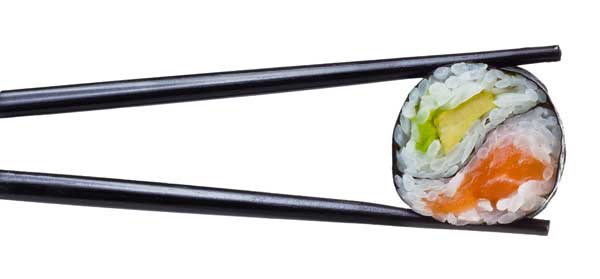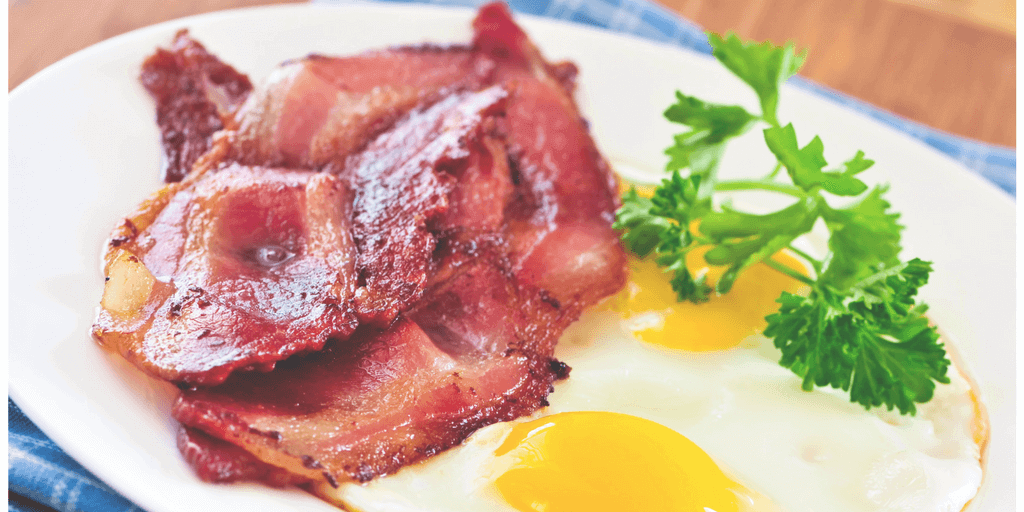Celery Juice Benefits: Hope or Hype?

There is always something new trending in the area of nutrition. What’s the flavor of the month? Celery juice! It’s being sold in the trendy cafes and has stars like Elle McPherson, Robert de Niro and Kylie Jenner drinking it. It’s the darling of Instagram, #CeleryJuice, and is home to almost 100,000 posts! I’ve had numerous clients contact me recently asking me if they should jump on the celery juice bandwagon. Proponents claim it’s a cure all. Have skin problems?Have some celery juice! Get bloated after every meal?Have celery juice! Feeling tired and sluggish throughout the day? Celery juice will do the trick! Hmmm…
could celery juice become the new kale? I always like to check out the science before recommending anything. So my nutrition intern, Catherine Scott Fischer (see pic), will be taking a deeper dive into its claims and doing some evidence based research on celery juice benefits: hope or hype? Read on for her guest blog post.


How did celery juice become so popular?
You may be wondering what’s so great about celery juice? I’ve always thought of it as a super low calorie stringy vegetable that’s perfect for weight loss diets. I certainly didn’t consider it as a nutritional powerhouse. So how did the juice of this stringy vegetable become so popular?
You may or may not have heard of Anthony William, aka “Medical Medium” (and friend of GOOP!) and author to several books on the healing properties of plants. He is the self-described originator of the Global Celery Juice Movement. He believes in that a plant-based diet, along with supplementation, can heal and even reverse one’s ailments. Of note, he doesn’t have any formal or licensed healthcare-related credentials.
What are the claims about celery juice?
You name it! I listed a few below. Some are from the Medical Medium, others are from numerous other sites on the internet.
- Helps with autoimmune conditions, acne, eczema, psoriasis, migraines, acid reflux, addictions, anxiety, depression, fatigue, weight issues, bloating, constipation. Taken from the Medical Medium. In case you care … recently, Kim Kardashian posted she was drinking “gross” celery juice because the Medical Medium says it helps with psoriasis, a skin condition she’s long been open about having.
- It contains an abundance of anti-inflammatory properties. It contains the flavonoid, luteolin, that can function as an antioxidant and soothe inflammation.
- Lowers blood pressure
- Rejuvenates and one’s digestive health strengthens:It stimulates the release of hydrochloric acid (HCL) in the stomach. This is essential as HCL helps break down, digest, and absorb essential nutrients. Low levels of HCL will impair the body’s ability to perform these tasks. An appropriate level of HCL also gets rids of any harmful bacteria or viruses in the stomach.
- Purifies the blood stream: Celery also contains a particular compound called coumarins which promotes the activity of white blood cells and assists with blood flow, reduces blood pressure and purifies the bloodstream.
- Detoxifying and hydrating: This aids in balancing the body’s pH level which is critical in protecting healthy cells, lowering the risk of heart disease, protecting bone density, reducing inflammation, etc.
- Helps restore adrenals
- Kills Epstein-Barr and shingles virus
- Contains undiscovered sodium cluster salts that are critical for the brain
- Treats insomnia
- Aids in weight loss
 Hmmm… sounds like a miracle juice! Is it just me, or does this sound toogood to be true?
Hmmm… sounds like a miracle juice! Is it just me, or does this sound toogood to be true?
Nutritional content of celery juice and celery
Before we look into the research behind these claims, let’s look at what nutrients you’ll find in celery. The main difference between celery and celery juice is that celery juice has no fiber and it’s a more concentrated source of nutrients. Let’s compare:
Celery Juice,12 oz from Juice Press:
50 calories
7 g grams of carbohydrates
3 grams of protein
0 grams of fat
< 1 gm fiber
280 mg sodium
880 mg potassium
35% Vit C, 25% Vit A and 10% calcium
5 medium stalks of celery (USDA food database)
28 calories
 6 gm carbs
6 gm carbs
0 gm fat
1 gm protein
3 gm fiber
160 gm sodium
520 gm potassium
80 mg calcium (8%)
Celery is also a good source of many vitamins and minerals such as vitamin K (8 oz juice provide 99% of your daily needs), vitamin B12, vitamin B6, vitamin C, potassium, calcium. Celery also contains compounds such as caffeic acid, p-coumaric acid, ferulic acid, apigenin, luteolin, tannin, saponin, and kaempferol, that are known for their antioxidant properties.
Is eating celery as good as drinking celery juice?
The celery juice guru’s say no. Here are a few “facts” from proponents of celery juice:
– You don’t get the same benefits from eating the celery as compared to drinking the juice. When you juice celery, you are removing the fiber which is essential if you want to experience its medicinal and healing
properties to its full potential
– To obtain the most health benefits drink it on an empty stomach every morning
– Adding other fruits/vegetables to the celery when juicing will not have the same health benefits
Sounds a bit mysterious.
What does the research say about celery juice?
It all really boils down to research. Spoiler alert: there isn’t much! Here are the studies I found:
– A study done in 2010 tested the antioxidant property of celery and parsley juice in rats who were being treated with doxorubicin (a drug that is used to treat acute leukemia and certain cancers). The drug is highly toxic to the body and this experiment was performed to determine whether the addition of medical herbs would reduce the drug’s harmful side effects. The conclusion reached informs us that celery root and leaf juices paired with doxorubicin proved to increase antioxidative capacity in the liver when comparing it alongside the control group who were treated solely with doxorubicin. However, this study was done on rats therefore this does not give us any indication of its effects on humans. Furthermore, they specifically  used celery root juice, not celery stalks, therefore we again, cannot conclude that celery stalks have any medicinal and healing properties. Reference
used celery root juice, not celery stalks, therefore we again, cannot conclude that celery stalks have any medicinal and healing properties. Reference
– Another study done in 2013 experimented with 54 rats to test celery seed extracts and their antihypertensive properties. They used celery seeds and the results showed that celery seed extract did reduce blood pressure and increased the heart rate in hypertensive rats; it had no effect on BP & HR in the control group that possessed already normal BP. In my opinion, this is a small sample size and again it is an experiment on rats, not on humans. Furthermore, this experiment dealt with celery seed extract and not celery stalk, so it gives us no further insight on the benefits of celery juice. Reference
Health benefits of celery
So while there aren’t a lot of studies backing up the health benefits of celery juice, we do know that celery has good nutritional profile as noted above.
-Celery juice is very high in vitamin K which promotes general bone and heart health.
-Because of celery’s diuretic properties (high water content) and the fact that it contains magnesium, phthalides, and potassium, celery may actually help those with high blood pressure.
Note:
People who are on medication, specifically statins, blood pressure, and anti-anxiety medications, must be proceed with caution ingesting celery juice. Similarly, to grapefruit juice, celery juice contains a natural chemical compound called furanocoumarins “that can raise the blood levels of certain medications. Reference In addition, it’s high in vitamin K, so avoid drinking celery juice if you are taking a blood thinner like coumadin.
Bottom line
There has been very little research done on celery stalks specifically and their medicinal properties. Firstly, the studies done have only been conducted on rats. Secondly, they used celery root juice or celery seed extract which is not what we are consuming when we drink celery juice. While the claims about celery’s powerful benefits are compelling, there is no substantial research to confirm these claims.
So bottom line, if you enjoy a glass of celery juice, go for it. Maybe you’ll feel some benefits. There’s no downside (aside from those listed above). It’s a good source of vitamins, minerals and antioxidants. Just  don’t expect it to live up to its claims … at least not until further research is done. I also don’t believe that any one food is a miracle cure. It’s more about your overall dietary patterns. For me personally, I think I’ll skip the celery juice bandwagon … or at least stick to eating celery to get the fiber!
don’t expect it to live up to its claims … at least not until further research is done. I also don’t believe that any one food is a miracle cure. It’s more about your overall dietary patterns. For me personally, I think I’ll skip the celery juice bandwagon … or at least stick to eating celery to get the fiber!
I’d like to thank Catherine Scott Fischer for writing this blog post.
Catherine is a senior at New York University studying Nutrition and Dietetics. She was born and raised in Belgium and moved to the US when I was 18. This move coincided with a drastic change in her diet and she developed a passion for healthy, plant-based food! She has been vegetarian for 6 years and transitioned into a vegan lifestyle a year and a half ago. Catherine loves running, dancing and cooking! Stay tuned for more of her blog posts.
RELATED POSTS
MEET MARTHA
I especially love problem-solving, whether it’s helping women defeat issues plaguing them for years, helping a busy executive find practical ways to get heart healthy, or providing tips to help you reverse diabetes. That’s why I’m on a constant quest to expand my knowledge by staying on top of the latest research.
4 Comments
Leave a Comment

20 Ways To Eat Out 550 Calories or Less!
No time to cook? We’ve got you covered. Here are 20 healthy meals from a variety of cuisines that won’t pack on the pounds. Most of them also have less than 30 grams of carbs.
Subscribe to my newsletter and get this free download.





I think this celery juice is super healthy! Thanks for posting this healthy recipe.
I hope more studies will be done about celery juice. This could at leas dispel any myths, or if true, then many would be encouraged to take it. Nice read!
Agree. I’d love to see studies done. So many people claim it’s helped them -I have seen any evidence that backs it up. It puzzles me!!
Good for gout also. Scientists discovered that Luteolin in celery is a compound that lowers harmful uric acid levels – which cause gout – by inhibiting an enzyme that promotes its overproduction.